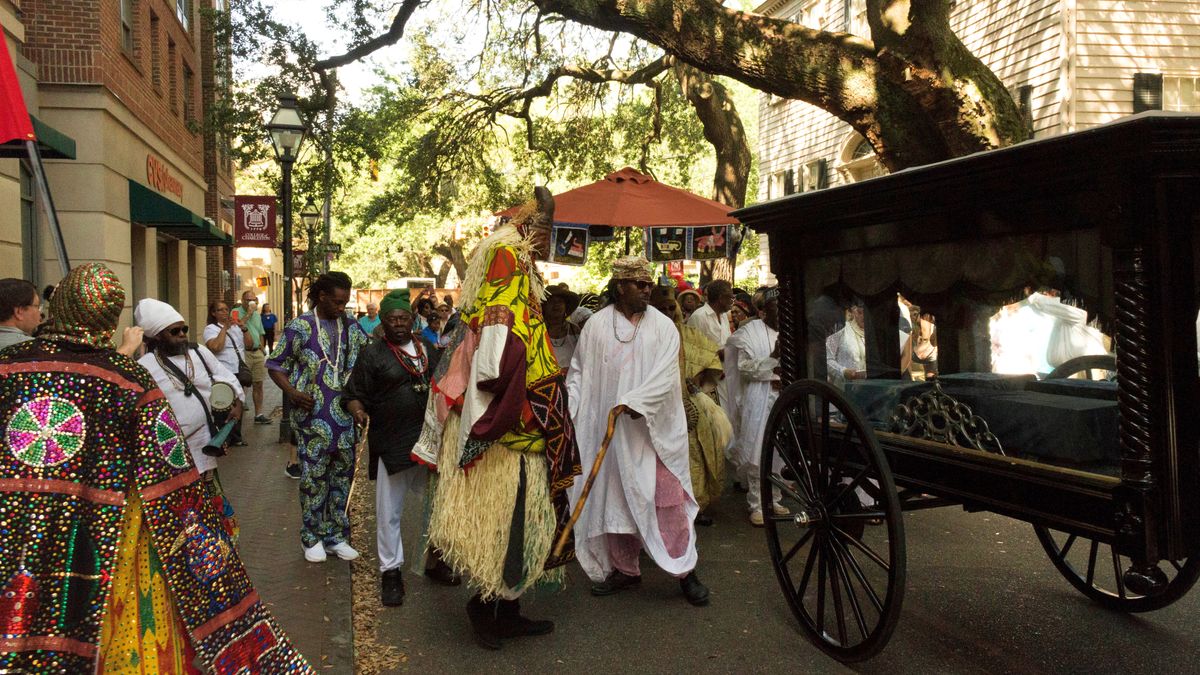Enslaved people were kidnapped from all across Africa, rare look at DNA from colonial cemetery revea
Enslaved people were kidnapped from all across Africa, rare look at DNA from colonial cemetery reveals
By Kristina Killgrove published 3 days ago
In 2013, South Carolinians made the unexpected discovery of a Colonial-era cemetery holding the remains of enslaved people. Now, a genetic analysis of some of these individuals reveals their origins.

The procession of Ancestors to their original resting place in the reinterment ceremony; individuals enclosed in reinforced boxes wrapped in indigo cloth were placed in a horse-drawn hearse and taken to the site, accompanied by an Egungun Masquerade, spiritual leaders, and members of the community. (Image credit: B.M. Ghersi)
People enslaved during the 18th century in Charleston, South Carolina were kidnapped from all across Africa and denied the chance to be buried with kin, a new DNA analysis from a local cemetery has revealed.
The findings, published Monday (Jan. 9) in the journal Proceedings of the National Academy of Sciences(opens in new tab) by University of Connecticut anthropological geneticist Raquel Fleskes(opens in new tab) and colleagues, give critical new information about the history of African-descended people in colonial America.
Charleston was a significant port city that, according to the Trans-Atlantic Slave Trade Database(opens in new tab), received close to 50% of all forcibly enslaved Africans who landed on the East Coast. Since very few African or African-descended skeletons have been studied to date, the new study is an important contribution to understanding enslaved people's life experiences in colonial North America.
In 2013, 36 graves were found in a previously unknown burial ground during renovations of the Gaillard performing arts center. Located in Charleston's historic Ansonborough neighborhood, the small 18th-century cemetery contained the remains of enslaved Africans. Prior to reburial, the Gullah Society, a nonprofit group that sought to document Black cemeteries, and the African American community of Charleston decided to pursue scientific analysis of the Anson Street Ancestors. They reached out to archaeologists and soon after created the Anson Street African Burial Ground (ASABG) Project to learn more about the individuals interred there and their ancestral origins.
More:
https://www.livescience.com/genetics-reveal-enslaved-people-origins
